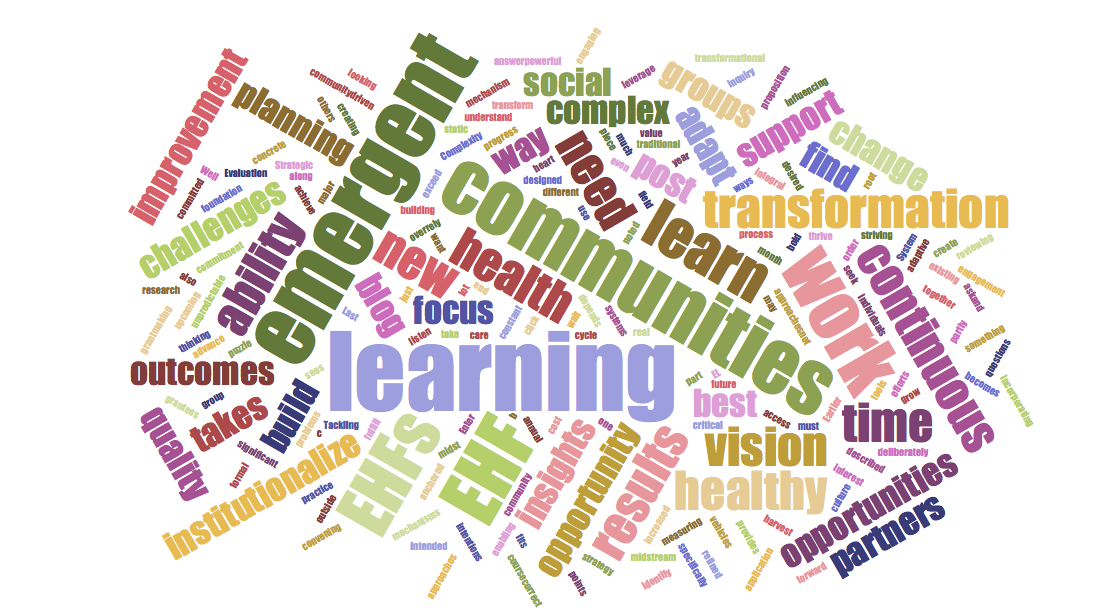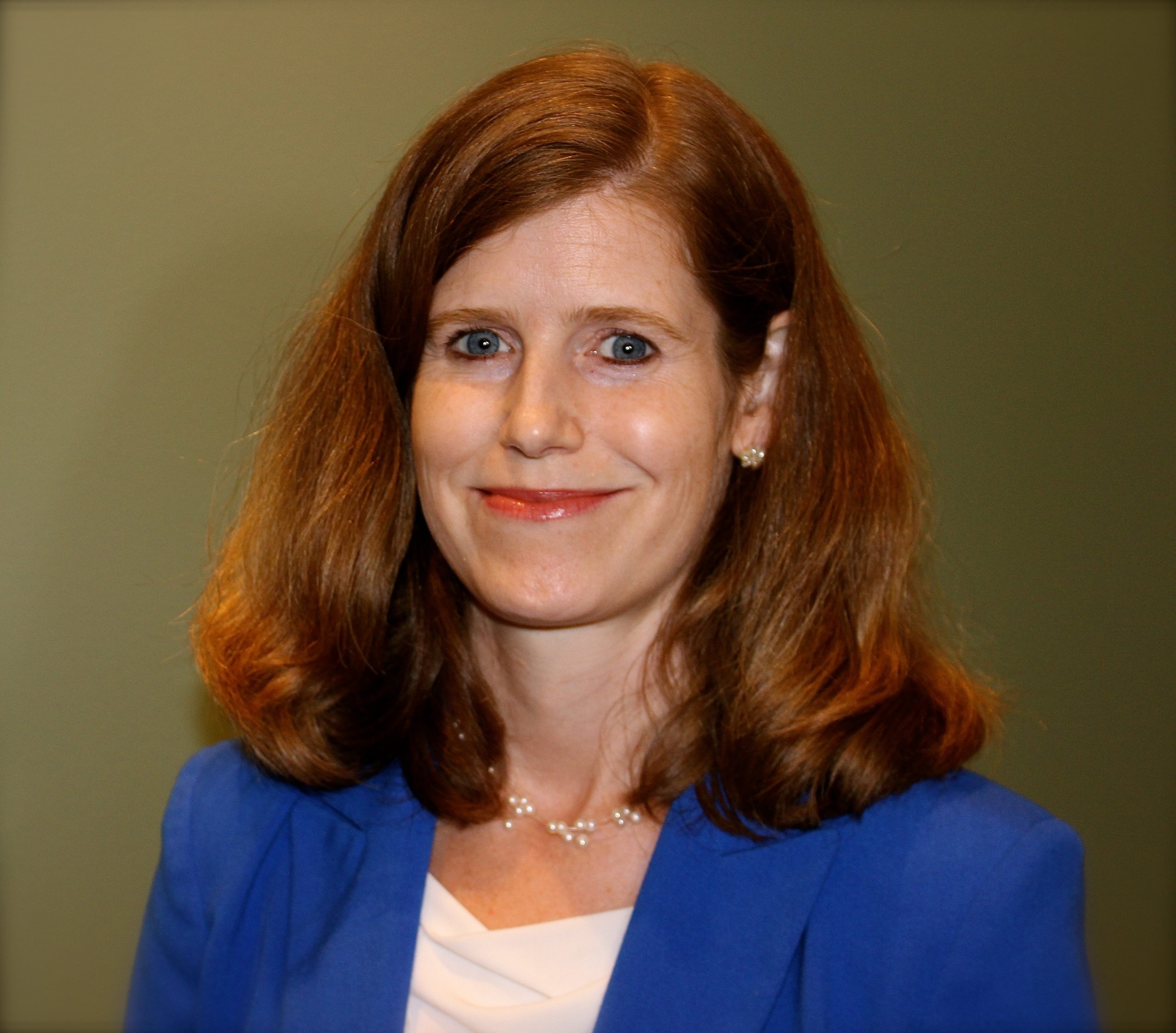
From the V1SION Blog:
By Sandra Wegmann, EHF’s learning officer

Last month, in her V1SION Blog post, CEO Elena Marks noted that part of EHF’s commitment to transformation to healthy communities depends on the use of different approaches—not just more of the same. If we want to build healthy communities, we not only need increased access to health care, we need a new focus on building health in an integral way for communities, individuals and systems.
In order to fulfill EHF’s bold vision, we must find new ways to adapt to complex social challenges. Because change is constant, we can’t over-rely on some of the traditional, static mechanisms for planning and measuring progress. If we wait until the end of an annual cycle to understand our results, the opportunity cost is significant.
Enter EHF’s interest in Emergent Learning. Emergent Learning is a field of practice designed to “institutionalize a group’s ability to achieve or exceed desired outcomes even in the midst of unpredictable challenges.” The Foundation sees Emergent Learning as one of the major vehicles for continuous learning about what it takes to advance transformation to healthy communities. EHF’s vision is anchored in our adaptive ability to listen, learn and work together with communities along the way.
Earlier this year in a blog post, we described our efforts to build a Strategic Learning and Evaluation System at EHF that would institutionalize continuous improvement at the foundation. Emergent Learning is a critical piece of this puzzle because it provides:
- the opportunity to learn in real time
- concrete tools to learn from work on complex social problems
- a mechanism to harvest insights from existing work
The value proposition for Emergent Learning is partly about enabling a group to focus their intentions (and specifically, intended results) and then creating opportunities to course-correct mid-stream. While reviewing results may not be something new, the application of insights to upcoming opportunities outside of a formal planning process can transform future outcomes.
At the heart of Emergent Learning is the ability to ask—and then deliberately answer—powerful questions so that the quality of a group’s thinking becomes refined, influencing strategy over time. What will it take for EHF to support transformational research, convening, congregational engagement and grant-making? EHF is committed to community-driven change and there is a lot to learn about how communities do their best work and identify points of leverage. We’ll need to adapt, over and over again, to find out how best to support communities that thrive.
Emergent Learning very much fits with the culture of inquiry and continuous quality improvement that we’re striving to create at EHF. We’re incorporating it into our work with grantees, congregational partners, and others.
Over time, as EHF’s work takes root, approaches for engaging Emergent Learning with our partners will also grow. We’re looking forward to learning from you and with you as we seek community health transformation.